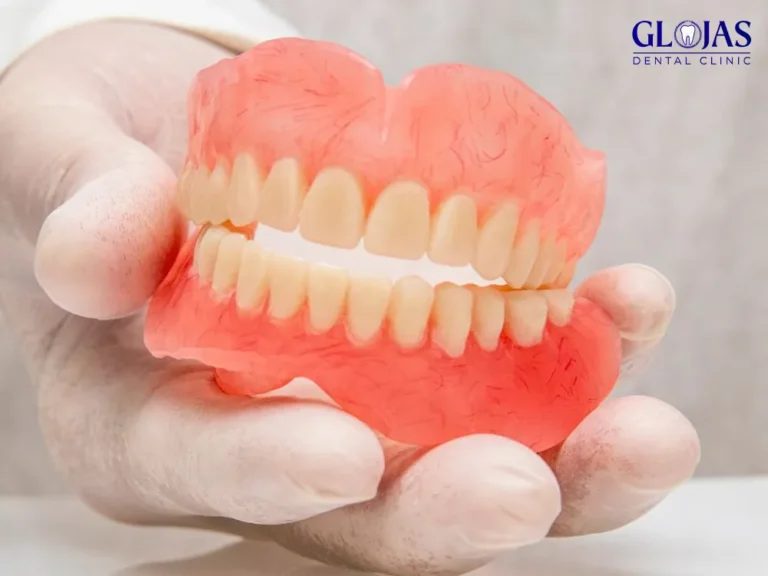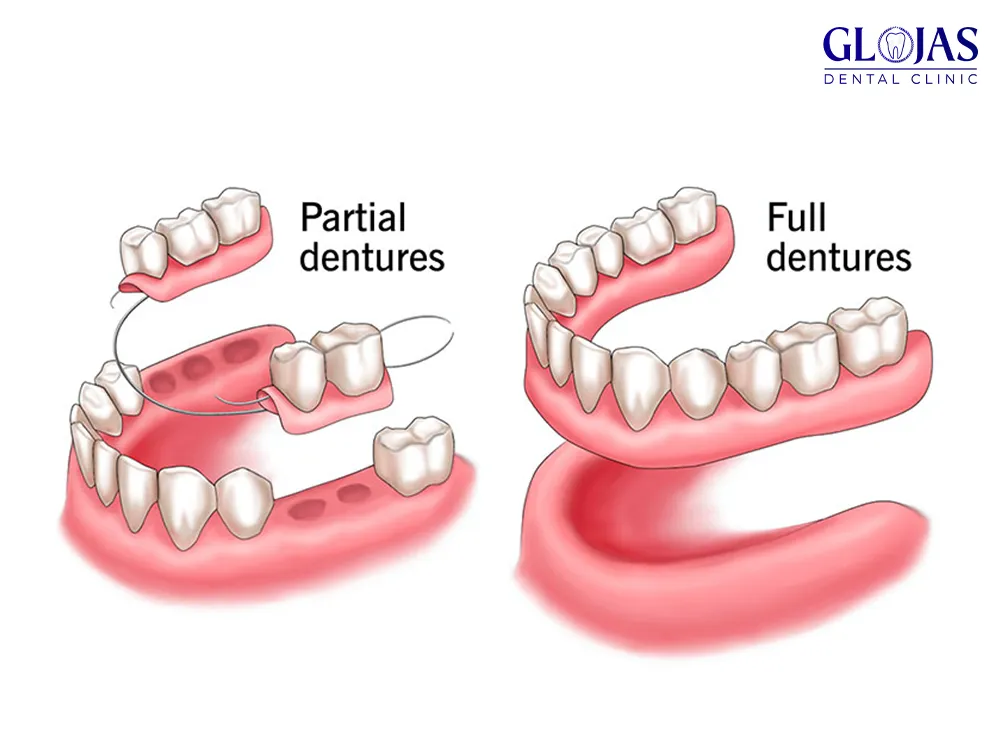Dentures play a significant role in restoring your smile and improving oral functionality. Whether you’re new to dentures or have had them for years, understanding how to care for them is vital to maintain their longevity and ensure your comfort. This guide will cover everything from types of dentures and their care to practical dos and don’ts, and answer common questions about dentures.
Types of Dentures
Knowing the types of dentures available can help you choose the right option for your needs:
Complete Dentures:
Designed for individuals who have lost all their natural teeth. These replace the full upper or lower set of teeth.
Partial Dentures:
Used when some natural teeth remain. They are secured with metal clasps or precision attachments.
Implant-Supported Dentures:
Anchored to dental implants for enhanced stability and function. They’re ideal for those seeking a more permanent solution.
Immediate Dentures:
Placed immediately after tooth extraction. They are temporary and help during the healing period.
Overdentures:
Fit over remaining natural teeth or implants. They provide a more stable and natural feel.
Custom Dentures:
Tailored to fit your unique oral structure for better comfort and aesthetics.
How to Care for Your Dentures
Proper care of your dentures not only preserves their appearance but also prevents oral health problems like infections or sores. Follow these steps to keep your dentures in top condition:
Clean Daily:
Remove your dentures and rinse them to remove food particles.
Use a soft-bristle toothbrush and non-abrasive denture cleanser to brush all surfaces.
Avoid regular toothpaste as it can be too harsh and cause scratches.
Handle with Care:
When cleaning your dentures, hold them over a soft towel or a basin filled with water to prevent breakage if dropped.
Soak Overnight:
Store your dentures in a denture-soaking solution or plain water to keep them moist and maintain their shape. Never use hot water, as it may warp them.
Maintain Oral Hygiene:
Brush your gums, tongue, and any natural teeth twice a day to reduce bacteria and improve circulation.
Schedule Regular Checkups:
Visit your dentist regularly to check for proper fit and any necessary adjustments.
Dos and Don’ts of Denture Care
Dos:
Do Rinse After Meals: Remove and rinse your dentures with water to eliminate food debris.
Do Use Proper Cleaners: Stick to products specifically designed for dentures.
Do Store Correctly: Always place dentures in a safe, moisture-retentive environment when not wearing them.
Do Watch for Fit Issues: If your dentures feel loose or uncomfortable, consult your dentist promptly.
Do Stay Hydrated: Drink plenty of water to prevent dry mouth, which can affect denture adhesion.
Don’ts:
Don’t Use Abrasive Materials: Avoid stiff brushes or harsh cleaning products that can damage dentures.
Don’t Skip Cleaning: Neglecting daily care can lead to stains, odors, and infections.
Don’t Use Household Cleaners: Bleach or similar products can weaken or discolor your dentures.
Don’t Ignore Pain: Soreness or irritation could indicate an issue with fit or hygiene.
Don’t Adjust on Your Own: Always seek professional help for repairs or adjustments.
FAQs About Dentures
1. How long do dentures last?
Dentures typically last 5 to 10 years with proper care. Over time, natural changes in your mouth may require adjustments or replacements.
2. Can I sleep with my dentures on?
While it’s recommended to remove dentures at night to give your gums a break, occasional use during sleep is fine if properly cleaned beforehand.
3. What should I do if my dentures break?
Never attempt to repair broken dentures at home. Store the pieces safely and contact your dentist immediately.
4. Is it normal for new dentures to feel uncomfortable?
Yes, a brief adjustment period is common. If discomfort persists, consult your dentist for adjustments.
5. Can I use adhesive for a better fit?
Denture adhesives can help, but they should not replace proper fitting. See your dentist if you rely heavily on adhesives.
Conclusion
Caring for your dentures properly ensures their longevity and keeps your smile radiant. By understanding the different types of dentures, following the outlined steps, adhering to the dos and don’ts, and consulting with your dentist as needed, you can enjoy the benefits of dentures with confidence. If you have any concerns about your dentures, always seek professional advice to maintain optimal oral health.

